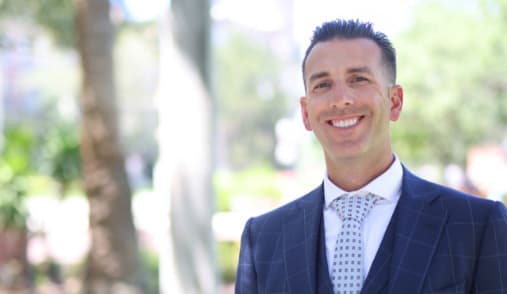Experiencing a car accident is a stressful and overwhelming situation. In the aftermath of such an event, it can be challenging to know what steps to take, especially when it comes to collecting evidence. However, gathering evidence is imperative for building a strong case and protecting your rights. By collecting evidence after a car accident, you can establish who was at fault, document the damages and injuries sustained, and ensure you receive the compensation you deserve. Be sure to contact a seasoned car accident attorney near you who can guide you through the legal process and help you collect and preserve evidence effectively.
The Elements of Negligence in a Car Accident Claim
To successfully recover compensation in a car accident claim, the injured party must prove that the other driver was negligent. Negligence occurs when a person fails to act with reasonable care, resulting in harm to another. In legal terms, proving negligence requires demonstrating four key elements: duty of care, breach of duty, causation, and damages.
Duty of Care 
All drivers have a legal duty to drive safely and follow traffic laws to prevent harm to others on the road. This duty applies to other drivers, passengers, cyclists, and pedestrians. For example, drivers must obey speed limits, stop at red lights, and yield the right of way when required.
Breach of Duty
A breach occurs when a driver fails to uphold their duty of care by acting recklessly, negligently, or carelessly. Common examples include speeding, running a red light, texting while driving, or driving under the influence. Evidence such as police reports, eyewitness testimony, and traffic camera footage can help establish this breach.
Causation
It’s not enough to show that the other driver was negligent—you must also prove that their actions directly caused the accident and your injuries. This is known as proximate cause. For example, if a driver runs a stop sign and collides with another vehicle, their failure to stop is the direct cause of the crash.
Damages
The final element of negligence is proving that the accident resulted in actual damages, such as medical expenses, lost earnings, pain and suffering, or property damage. Without documented losses, a claim may not be successful.
A car accident attorney can help gather evidence and build a strong case to maximize your compensation if you’ve suffered an injury due to another driver’s negligence.
Why Collecting Evidence After a Car Accident is Critical
After a car accident, gathering the right evidence can make or break your claim. Insurance companies and opposing parties will look for any reason to deny or reduce your compensation, so having solid evidence is critical. Let’s explore why collecting evidence after a car accident is necessary:
Establishing Fault and Liability 
To win a car accident claim, you must prove that the other driver was negligent. The more evidence you have, the stronger your case will be in proving liability. Evidence such as photographs, witness statements, and other driver’s information can help establish fault and liability.
Protecting Yourself from False Claims
The other driver may deny fault or try to shift blame onto you. Proper evidence collection prevents false accusations and strengthens your position. Gathering evidence at the accident scene can counter false claims and help protect you from unjust blame.
Strengthening Your Insurance Claim
Insurance companies often look for reasons to offer lower settlements or deny claims. Solid evidence makes it harder for adjusters to downplay injuries or property damage. By providing compelling evidence of the accident, you increase your chances of receiving fair compensation from your insurance company.
Preparing for a Potential Lawsuit
If settlement negotiations fail, strong evidence can be used in court to prove negligence and damages. Collecting evidence from the start makes you better prepared for a potential lawsuit. Evidence such as photographs, witness statements, and medical documentation can be compelling in court and increase your chances of winning a lawsuit.
Types of Evidence to Collect from the Scene
Here are the types of evidence that your car accident lawyer can collect from the scene of the accident:
Photographic and Video Evidence
High-quality photos and videos of:
- Vehicle damage from multiple angles.
- Skid marks, debris, or other roadway evidence.
- Traffic signals, stop signs, or road obstructions.
- Weather conditions at the time of the accident.
- Injuries sustained.
Dashcam footage can also provide irrefutable proof of how the accident occurred. If available, your attorney will ask nearby businesses or homes if they have security footage capturing the crash.
Witness Statements and Contact Information
Your car accident lawyer will obtain the names, phone numbers, and addresses of all witnesses. Witnesses provide unbiased third-party accounts that support your claim. Their statements and contact information can be invaluable during the claims process.
Police Report 
Even for minor accidents, you or your lawyer should request a police report. The police report contains critical details such as:
- Statements from both drivers.
- Citations issued to any party.
- Initial fault determination.
The police report serves as an official documentation of the accident and can be used to support your claim.
The Other Driver’s Information
Your lawyer will get the following information from the other driver (usually listed on the police report):
- Full name and contact details.
- Driver’s license number.
- Insurance provider and policy number.
- Vehicle make, model, and license plate number.
This information is necessary for filing a claim and establishing the other driver’s liability.
Medical Documentation
Even if injuries seem minor, seek medical attention immediately. Keep copies of medical records, prescriptions, X-rays, and treatment plans. Medical documentation links your injuries directly to the accident, making it harder for insurers to deny claims. Give all this evidence to your car accident attorney as soon as possible.
Evidence to Collect in the Days and Weeks After the Accident
Collecting evidence doesn’t stop at the accident scene. Here are some types of evidence you or your car accident lawyer should gather in the days and weeks following the accident:
Medical Records and Bills
Collect documentation of your medical treatment, including:
- Emergency room visits.
- Physical therapy or rehabilitation.
- Medications and assistive devices (e.g., crutches, braces).
- Psychological therapy (for emotional distress or PTSD).
Document ongoing pain and limitations in a personal injury journal. This will serve as additional evidence of the accident’s impact on your life.
Proof of Lost Earnings and Financial Losses
If the accident caused you to miss work, collect:
- Pay stubs showing lost earnings.
- Employer statements verifying time missed.
- Documentation for reduced earning capacity if injuries prevent you from returning to work.
By documenting your financial losses, you can seek compensation for the earnings you lost due to the accident.
Repair Estimates and Property Damage Reports
Get multiple estimates from repair shops for vehicle damage. If the car is totaled, request a valuation report from your insurance company. Keep receipts for rental cars, towing, and other expenses related to the accident. This evidence can help support your claim for property damage reimbursement.
Expert Testimony and Accident Reconstruction Reports
In complex or disputed cases, accident reconstruction experts can analyze the crash scene and provide professional opinions. Medical professionals who testify about long-term health effects and engineers who assess mechanical failures or vehicle defects can offer expert testimony. Expert witnesses can strengthen your case by providing objective analysis and evidence.
How Insurance Companies Use (or Ignore) Evidence 
Injured parties need to understand how insurance companies handle and evaluate evidence. Here are some ways insurance companies may use or ignore evidence:
Adjusters Will Look for Ways to Reduce Your Claim
Insurance adjusters may argue that:
- Your injuries are pre-existing or not accident-related.
- Your medical treatment was unnecessary or excessive.
- The accident was partially your fault.
They will look for any reason to reduce the compensation they offer you. That’s why having solid evidence is imperative in countering their arguments.
Common Tactics Used to Deny Claims
Insurance companies may employ various tactics to deny valid claims. These tactics include:
- Downplaying pain and suffering or emotional trauma.
- Arguing that delayed medical treatment means the injury wasn’t serious.
- Offering lowball settlements before a victim fully understands their medical condition.
By being aware of these tactics, you can protect your rights and seek fair compensation.
How Insurance Adjusters Manipulate Claims & Why You Shouldn’t Settle Too Soon
Insurance adjusters are not on your side, even if they seem caring and concerned. Their primary job is to protect the insurance company’s bottom line, which often means finding ways to reduce or deny claims. One of the most common tactics they use is asking misleading or tricky questions designed to get victims to admit partial fault—even if they were not responsible for the accident.
For example, an adjuster might ask:
- “Could you have done anything to avoid the accident?”
- “Were you distracted just before the crash?”
- “Are you feeling better now?”
Seemingly innocent answers, such as “I’m not sure” or “I feel a little better today,” can be twisted to downplay your injuries or shift some of the blame onto you.
Additionally, insurance companies often rush to offer a quick settlement in the hopes that victims—overwhelmed with medical bills and lost earnings—will accept far less than they deserve. These early settlement offers rarely cover future medical expenses, lost earning capacity, or pain and suffering. Once you accept a settlement, you forfeit your right to seek additional compensation, even if your condition worsens later.
That’s why consulting with a car accident lawyer before providing recorded statements or signing anything is always in your best interest. A lawyer will handle all communication with the insurance company, ensuring your rights are protected and you don’t inadvertently harm your case. With legal representation, you’ll have a better chance of securing the full compensation you deserve rather than settling for an offer that barely scratches the surface of your losses.
Hiring a Car Accident Attorney is Imperative
When it comes to collecting evidence and navigating the legal process after a car accident, hiring a car accident lawyer is in your best interest. Here’s why:
Lawyers Know How to Gather and Preserve Critical Evidence
Attorneys have the knowledge and resources to gather and preserve critical evidence. They can issue subpoenas for traffic camera footage, access expert witnesses, and work with medical specialists to strengthen your case. Their experience in handling car accident cases ensures that no evidence is overlooked.
Attorneys Can Handle Insurance Negotiations
A car accident lawyer will push back against unfair settlement offers and ensure all accident-related expenses are accounted for before accepting compensation. They understand the tactics used by insurance companies and can negotiate on your behalf. Having a car accident attorney by your side increases your chances of receiving a fair settlement.
Legal Representation Improves Your Chances of a Higher Settlement
Studies show that accident victims with attorneys recover significantly more compensation than those without legal representation. Hiring a car accident attorney improves your chances of securing a higher settlement and maximizing compensation. A lawyer can take the case to trial for maximum recovery if negotiations fail.
No Upfront Costs – Contingency Fee Basis
Most car accident lawyers work on a contingency fee basis, meaning you pay nothing unless they win your case. This arrangement allows you to pursue your claim without worrying about upfront costs. It also aligns the attorney’s interests with yours, as they only get paid if they successfully recover your compensation.
Contact a Qualified Car Accident Lawyer Today
Collecting evidence is one of the most critical steps to take after a car accident. It can prove fault, support your claim, and protect you from unfair insurance tactics. Waiting too long to reach out for legal help can risk valuable evidence being lost or destroyed. If you’ve been in a car accident, don’t risk losing this valuable evidence—contact an experienced car accident attorney today for a free consultation and let them collect the right evidence and fight for the compensation you deserve.



